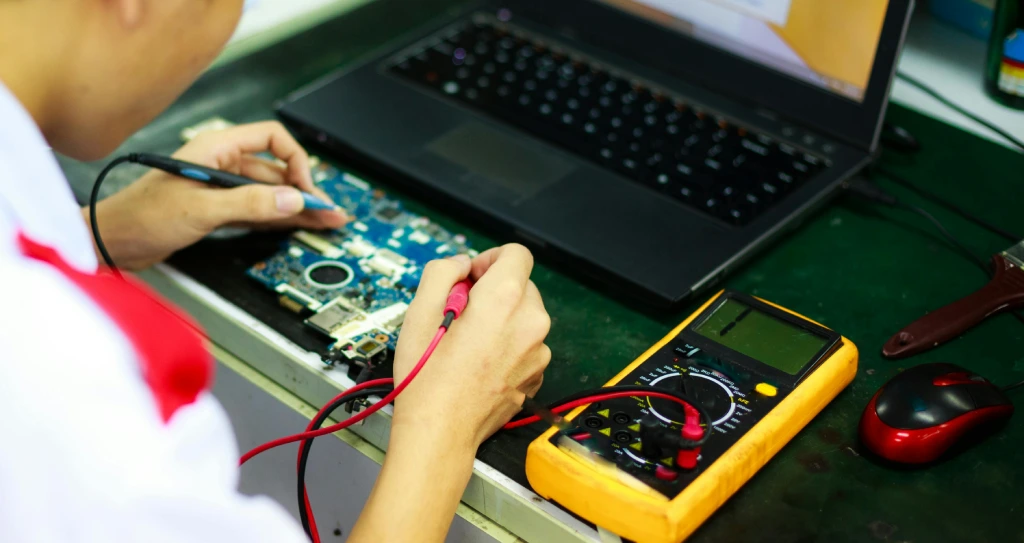Wall Street Journal reporter Keach Hagey explores our AI-obsessed era through one of its major players, Sam Altman, co-founder and CEO of OpenAI, in his article “The Optimist: Sam Altman, OpenAI, and the Race to Invent the Future.”
Hagey starts by discussing Altman’s Midwest background before guiding readers through his work at Y Combinator, startup Loopt, and now OpenAI. She also provides fresh insight into the events of Altman’s dramatic dismissal and swift reinstatement as CEO of OpenAI.
Looking back at what OpenAI staff now refer to as “the Blip,” Hagey said the unsuccessful attempt to remove Altman demonstrated that OpenAI’s intricate organizational structure, which consists of a for-profit business run by a nonprofit board, is “not stable.” Additionally, Hagey said that this “fundamentally unstable arrangement” will “continue to give investors pause,” as OpenAI has mostly backed down from ambitions to allow the for-profit side take control.
Does that imply that OpenAI may have trouble raising the money it requires to continue operating? In response, Hagey said it might “definitely” be a problem.
“My investigation into Sam indicates that he may perhaps meet that task,” she stated. “However, success is not assured.”
Furthermore, Altman’s views are examined in Hagey’s biography (also available on Spotify as an audiobook), which she characterized as “quite classically progressive.” It is rather unexpected that he has landed big data center partnerships with the support of the Trump administration.
But because Trump and Sam Altman are both deal makers, Hagey remarked, “I feel like Sam Altman was born for this moment in some respects.” “Sam Altman excels at making a big deal with a huge price tag, and Trump respects nothing more than that.”
Hagey also talked about Altman’s reaction to the book, his credibility, and the AI “hype universe” in an interview with TechCrunch. The length and clarity of this interview have been adjusted.
You begin the book by addressing some of Sam Altman’s concerns about the project, such as the notion that it is far too early to evaluate OpenAI’s effects and that we frequently concentrate too much on individuals rather than groups or large movements. Did you have similar worries?
Well, since this was a biography, I do not really share them. The goal of this research was to examine a person rather than an institution. Furthermore, I believe that Sam Altman has positioned himself in such a way that it matters what moral decisions he has made and how he has developed his moral character since the overall goal of artificial intelligence is, in fact, a moral endeavor. That is the foundation for OpenAI. Therefore, I believe it is reasonable to inquire about a person rather than just an organization.
Regarding the question of whether it is too early, I mean, it is unquestionably [early to] evaluate the full impact of AI. However, OpenAI has had an incredible journey; thus far, it has altered the stock market and the whole corporate narrative. My profession is business journalism. All day, every day, we just talk about artificial intelligence. Therefore, I do not believe it is too early.
And Altman did work with you in spite of those misgivings. Could you elaborate on the nature of your interaction with him while you were doing the research for the book?
When he was told that the book existed, he was undoubtedly unhappy. To be honest, there was a lengthy period of negotiation. I initially believed that I would write this book on my own without his assistance; this is known in the industry as a “write-around profile.” Throughout my work, I had completed a lot of those, so I assumed this would be simply another.
He gradually became more receptive as I called him more frequently. And [in the end], he was kind enough to sit down with me multiple times for lengthy interviews and express his opinions.
Has he ever replied to the completed book?
No. He did tweet about the initiative and his choice to take part in it, but he made it very apparent that he would never read it. The same is true of my dislike of seeing my podcasts or TV appearances.
He is characterized as this quintessential Silicon Valley character in the book. What qualities, in your opinion, best define him as a representation of the Valley and the tech sector?
I believe it started because he was young. He founded his first startup at the age of 19, and the Valley truly exalts youth. No one could get over the fact that this youngster was so intelligent when you saw him go into meetings with individuals twice his age and negotiating with telecom carriers for his first startup.
He is a once-in-a-generation fundraising talent, which is really a storytelling skill. I do not think it is a coincidence that the most significant AI firm in the world today has a fundraiser and a salesman at the top.
That relates to the question of Altman’s credibility, which is one of the central ones in the book. Could you elaborate on the worries that individuals appear to have regarding that? How much of a reliable person is he?
Since he works as a salesperson, he is quite good at persuading people that he has a connection to them and that he can see into the future. He has a unique ability to persuade others to share his viewpoint.
Some others have seen that often, come to the conclusion that “what he says does not always map to reality,” and have gradually come to distrust him. This took place at Y Combinator, his first startup, and the well-known OpenAI. Although there is a pattern, I believe it is a common criticism of those with the salesperson skill set.
Therefore, it is not necessarily that he is especially untrustworthy; rather, it is a necessary aspect of being a salesman in charge of these significant businesses.
They essentially had to do a 180-degree turn, which will make it more difficult for them to acquire funds. I am aware that the public benefit corporation’s future structure differs slightly from the for-profit company’s current form; it is slightly more investor-friendly and clarifies some of those issues.
The so-called Blip, however, was caused by a fundamentally unstable system in which a nonprofit board governs a for-profit business. And if investors are going to have such little influence over their investment, I believe you would continue to make them pause.
It is evident that OpenAI remains a highly capital-intensive enterprise. Is it an existential dilemma for the company if they are having trouble raising more money?
It very well might be. Sam may very well be capable of meeting that task, based on my investigation into him. However, success is not assured.
As you mentioned, the book presents two points of view: one concerning Sam’s identity, and the other about what that suggests about the future of artificial intelligence. How has your perspective on these more general discussions about AI and society changed as a result of your investigation into his specific story?
In part because I found it remarkable that Jerry Altman, Sam Altman’s father, had been left out of almost everything else that had ever been published about Sam Altman, I went down a rabbit hole at the start of the book, [searching] into him. My study revealed an idealistic individual who had a strong interest in public-private partnerships and the government’s ability to establish policy from a young age. He ultimately had an influence on how affordable housing is still funded today.
Sam has long held the view that the government ought to be in charge of financing and directing AI research, as I discovered when I followed his progress. As he has stated publicly, they attempted to persuade the government to invest in OpenAI in its early days, but it was unsuccessful. However, he recalls these fantastic private laboratories from the middle of the 20th century, such as Bell Labs and Xerox PARC, which were supported by a significant amount of government funding. “That is the appropriate way to do it,” he adds.
I now watch every day because it appears that the US is enlisting the help of state capitalism to support Sam Altman’s plan to construct these data centers, first in the US and then, last week, in Abu Dhabi. He has been seeing this vision for a very long time.
His prior presentation of the vision gave me the impression that while the government is sponsoring these initiatives and constructing this infrastructure, it is also controlling and directing the development of AI for security reasons. And it appears that they are now shifting their focus from the safety side to the government investment side.
Absolutely. Is not it intriguing?
You describe Sam as a political person who has had political aspirations in the past but also holds what are essentially liberal political beliefs and has been friends with people like Peter Thiel and Elon Musk, at least in the beginning. Additionally, he has navigated the Trump administration quite well. What do you think his current political stance is?
His actual politics are very conventionally progressive, so I am not sure if they have changed. In general, he believes that the government exists to collect taxes and address issues, yet he has been skeptical of things like cancel culture.
His performance in the Trump administration has been intriguing because he has been able to identify their one commonality, which is the desire to construct a large number of data centers, and simply focus on that while ignoring everything else. However, in this particular area, I feel that Sam Altman was destined for this moment since he and Trump are both deal makers. Nothing is more important to Trump than a large deal with a high price tag, and Sam Altman excels at it.
You start and finish the book with Sam’s entire family, not just his father. What more should be mentioned about how his family and upbringing have shaped who he is today?
You can sense his father’s idealism as well as his mother’s extraordinary desire. His mother was a dermatologist, a doctor with four children. These two factors, in my opinion, combine to mold him. Additionally, their marriage was more tumultuous than I had anticipated when I started reading the novel. Sam is quite honest about his worry, so I do believe that there is some there. He was a quite worried person for a large portion of his life until he meditated and had certain experiences.
And then there is his present family; he recently got married and had a baby. He faced certain obstacles as a young gay man growing up in the Midwest, and I believe that these obstacles helped to form his positive outlook on life and made him a courageous high school student who could take on a room full of people. I depict his wedding as an unthinkable event from the early 1990s or the 1980s, when he was born, because of that. He has seen society grow and advance in very real ways, and I believe that this has strengthened his belief in progress.
Writing about AI has shown me that the many perspectives held by those working in the subject may be so drastically different from one another. You have these extremely optimistic ideas, but you also warn that AI might bring about the end of the world. It becomes so exaggerated that it seems as though people are living in different realities. Was it difficult for you to write the book?
In my opinion, those two seemingly disparate ideas are actually components of the same one, which holds that artificial intelligence is crucial and will fundamentally alter the world. “Maybe this is going to be a nice enterprise tool, another way to waste time on the internet, and not exactly revolutionize things as much as everyone believes” is the exact opposite of that, but no one ever discusses it. In my opinion, boomers and doomers are both a part of the same hype universe and feed off one another.
You do not have to take a stance on it as a journalist or biography, but can you honestly state where you stand on that?
I will admit, though, that I have been using it a lot more lately because it has improved greatly. When I was first studying the book, I was undoubtedly far less certain about its ability to revolutionize the economy. I simply use it a lot more now, so I am less dubious.





Leave feedback about this